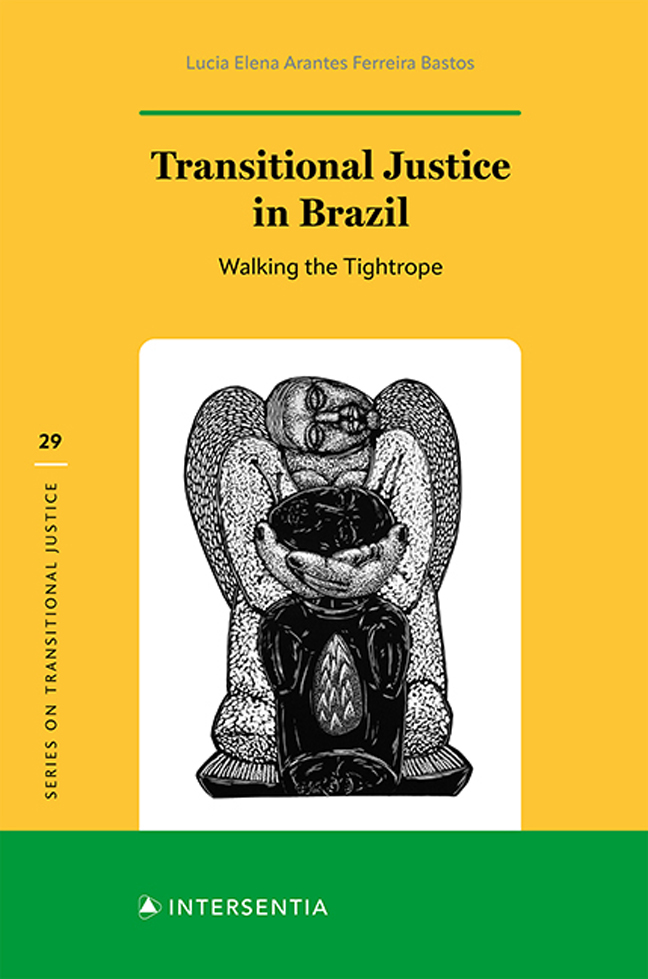Book contents
- Frontmatter
- Foreword
- Acknowledgments
- Contents
- List of Acronyms and Abbreviations
- 1 Introduction: Historical Perspectives from the Brazilian Dictatorship and Transitional Justice Measures
- Part I The Intersection Between Amnesty, the Rule of Law, and Authoritarian Legacies
- Part II Steps Towards Reparations, Accountability, and Truth
- Part III Complex Forms of Reparations, Accountability, and Truth-Seeking: Actors Beyond Agents of the State
- Bibliography
- Index
- About the Author
8 - A Gendered Approach to Brazilian Transitional Justice
Published online by Cambridge University Press: 29 February 2024
- Frontmatter
- Foreword
- Acknowledgments
- Contents
- List of Acronyms and Abbreviations
- 1 Introduction: Historical Perspectives from the Brazilian Dictatorship and Transitional Justice Measures
- Part I The Intersection Between Amnesty, the Rule of Law, and Authoritarian Legacies
- Part II Steps Towards Reparations, Accountability, and Truth
- Part III Complex Forms of Reparations, Accountability, and Truth-Seeking: Actors Beyond Agents of the State
- Bibliography
- Index
- About the Author
Summary
“Silence is what allows people to suffer without recourse, what allows hypocrisies and lies to grow and flourish, crimes to go unpunished. If our voices are essential aspects of our humanity, to be rendered voiceless is to be dehumanized or excluded from one’s humanity.
And the history of silence is central to women’s history”.
History is made by men and women, in every single moment, in their daily lives. However, many of these experiences or political battles are lost forever, accumulating silences, which are sometimes historically constructed, because from time to time history has been partial, and has silenced or hidden subjects. But, lately, in an attempt to correct historical gaps, the objects of investigation have been pluralized, admitting as historical subjects the workers, the peasants, the slaves and the women, who before were underestimated. In this aspiration to reverse traditional historical perspectives, scholars began to look at historical events from the perspectives of other subjects. Specifically, in the case of women, we have sought to observe their presence in History, including them not only as object of study, but also as active subjects of History; and to this end, the category of analysis – gender – has been used to theorize the question of sexual difference and of power relations between men and women. In this chapter, we will analyze the History of women and their participation in groups opposed to military dictatorship, and the reparations that Brazilian Transitional Justice has provide to them.
8.1. WOMEN’S PARTICIPATION IN THE ANTI-DICTATORSHIP MOVEMENT
Women were probably the part of the society that most faced changes during the 1960s and 1970s in Brazil, since they had to deal with modifications in everyday life, in the job market, with the reduction of the number of children per family, and so on. In order to answer to those challenges, they had to improve their level of education, which in the long run has altered their relationships not only with men, but also with other women. At that time, this new dynamic of life for women was due to several factors: the expansion of capitalism, the growth of the manufacturing industry, the decline of the rural population, and the increase of urban areas.
- Type
- Chapter
- Information
- Transitional Justice in BrazilWalking the Tightrope, pp. 205 - 240Publisher: IntersentiaPrint publication year: 2023

